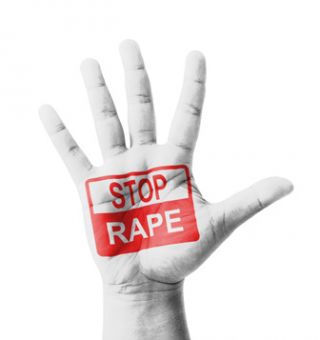Education
Is Bill Cosby a Serial Rapist?
Are we learning anything from the Bill Cosby circus?
Posted November 21, 2014

Bill Cosby
That’s the question a lot of people are asking themselves lately—including millions of us who grew up with one of America’s best-known comedians as Mr. Huxtable on “The Cosby Show.” But where there’s smoke there’s fire . . . and in this case there is a lot of smoke blowing around.

As both an attorney and a survivor of sexual assault, I have listened to the tales of Cosby’s alleged sexual misconduct as they came come from supermodel Janice Dickinson, a college basketball coach, an attorney, at least three former actresses, a registered nurse, and others. To me, their words and body language all seem remarkably credible. While the women may be very different from one another, and some of the incidents happened decades apart, the accusations share some strikingly similar details. They repeatedly suggest the comedian used his fame and stature to win his victims’ trust and then drugged and/or assaulted young women who felt powerless to stop him, or to confront him publicly after the fact.
It took a rant by another comedian, Hannibal Buress, to bring these accusations into the public’s consciousness. Why did it take one of Cosby’s peers, and a man, to drag such a serious issue into the limelight? As Andrea Bowman, one of the victims, wondered publicly, why has it taken 30 years for the media to pay attention? How many women have to say they were assaulted before they can be taken seriously?
Sadly, this isn’t a unique situation. Cosby is far from alone in being accused of sexual assault. Woody Allen, Roman Polanski, and Ceelo Green have all been accused of sexual assault in recent years, but few seem to hold it against them. And while it’s certainly true that everyone should be presumed innocent until proven guilty, the fact that certain public figures have been accused of sexual assault multiple times – and in some cases, of particularly violent rapes – should tell us something about the way our culture and media view these incidents.
Some of Cosby’s accusers say he positioned himself as a father figure before attacking them, then used his wealth and influence to silence and intimidate them. Is it any wonder they didn’t come forward sooner?
Viewers see familiar faces on TV and like the roles the stars play, and then fool themselves into thinking they know the actor’s moral character. Human minds tend to work that way, but reality doesn’t always conform. Turning a blind eye to something you don’t want to see makes you an accomplice. When you blame the victims of sexual predators, you punish them for being in the wrong place at the wrong time and further enable their attackers.
It doesn’t just happen to those who have been raped by TV stars, musicians, sports figures, or famous directors. There are women and children all over the country who live with two kinds of fear: first, that they’ll be attacked again, and second, that someone will find out about what’s being done to them. Often, they choose to live the lie rather than take the chance and speak up for the truth in order to avoid embarrassment, shame, and humiliation. I know; I’ve been there.
This is a personal issue for me, but it’s also a good opportunity to shed some light on a bigger problem. If it’s true that Mr. Cosby indeed forced himself upon more than a dozen women, hiding behind his fame, money, and connections, then the public may never really know how many more victims there are. Obviously, the controversy surrounding Bill Cosby is front-page news because of his fame and clean-cut image. It makes for good TV and interesting articles. But it’s important not to forget that the accusations being made against him aren’t entertainment. He stands accused of not only sexually assaulting numerous young women who trusted him, but also of taking away their peace, dignity, and sense of security.
The way we treat the victims of sexual assault is wrong. We now have the opportunity to change this dynamic.


